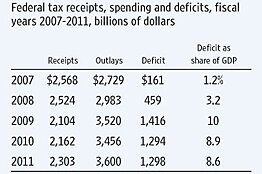Joshua Rovner has a thoughtful post up at The National Interest’s The Skeptics today, and it reminded me to plug Josh’s book, and the event that we are hosting with him, Paul Pillar, and Mark Lowenthal on Monday, October 31st. It should be a terrific discussion. Details here.
Rovner’s blog post fits directly with the themes addressed in the book, but it also touches on something that I wrote about several months ago: would the appointment of David Petraeus as CIA Director subtly affect the agency’s assessment of progress—or lack thereof—in Afghanistan? Josh nicely summarizes the relevant concerns as Petraeus prepared to assume his new duties:
Petraeus was the public champion of the counterinsurgency doctrine that he claimed was necessary to defeat the Taliban and deliver stability to Afghanistan. How could he protect the objectivity of CIA analyses when he had such an obvious conflict of interest? Would he faithfully transmit analysts’ conclusions to policymakers, even if they implicitly criticized his approach to the war?
Petraeus addressed these concerns during his Senate confirmation hearings in June. “My goal has always been to ‘speak truth to power,’” he said, “and I will strive to do that as Director of the CIA.”
Rovner then explains what happened next, beginning last Thursday with Kim Dozier’s story for the AP that described a change in CIA analysis of Afghanistan that incorporated more information from military commanders on the ground. Citing a senior intelligence official, the story explained that “Critics of the change say allowing the military more pushback will have a chilling effect on the analysts’ ability to give the war a failing grade.” Another “intelligence official expressed concern that this would institutionalize the former general’s habit when in Afghanistan of challenging the CIA’s unflattering conclusions.”
CIA officials denounced the report the following day, and Petraeus responded with a memorandum to all CIA employees on the AP story which, he said, “presents an inaccurate picture of my thoughts on the CIA’s Afghanistan analysis.” The change was made before Petraeus assumed duties as director, the memo explains, and it “will in no way undermine the objectivity of DI analysis on the war in Afghanistan. We will still ‘call it like we see it,’ but now with even better ground truth.”
The original story, and the CIA and Petraeus’s responses to it, have an air of “he said, she said” about them. Perhaps this was an honest attempt to improve the quality of intelligence from Afghanistan? Perhaps it was intended to shape the outcome in a more positive direction? Who knows? Rovner hones in on the essential question:
Take Petraeus at his word, accept his promises that he will not let vested interests affect his management decisions, and assume that the shift in the assessment process is not an attempt to manipulate intelligence. Is it still a good idea?
There is obvious value in incorporating military views into intelligence products. Field commanders can offer uniquely detailed views on the nature of the conflict. Continued fighting allows them to monitor enemy tactics as well as changes in the enemy’s level of effort. Their interaction with civilians also allows them to gauge public sentiment, at least at the local level. Done well, military assessments can paint a vivid portrait of the overall course of the war.
But assessments are not always done well. One reason is that they are inherently narrow. This is not to criticize: troops operating in a small area inevitably see the war through a soda straw. Nonetheless, they might conclude that trends in their own area are representative of larger trends throughout the country. Avoiding this problem requires methodical efforts to aggregate micro-level military perspectives into macro-level analyses while remaining cognizant of the serious analytical dangers involved.
Rovner concludes:
Accurate and timely intelligence will be critical as the Obama administration reconsiders what kinds of political outcomes are possible with a stripped-down force in Afghanistan. Integrating military views might lead to more comprehensive CIA assessments, but it might lead to more confusion if bad metrics are included for the sake of keeping estimates current. Hopefully the dust-up over the AP report will remind CIA officials to remain on guard against politicization, and to make sure that the changes in the assessment process do not lead to false optimism.

